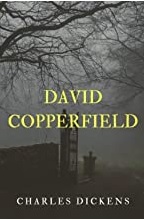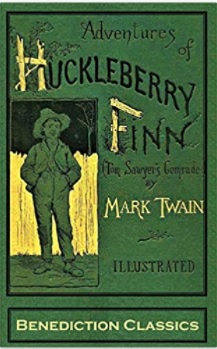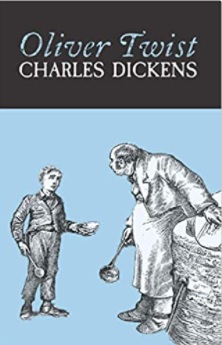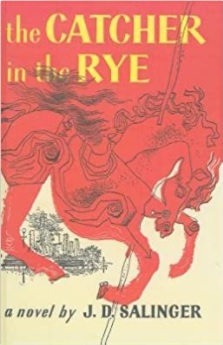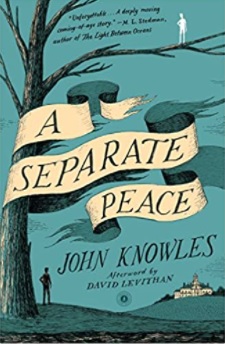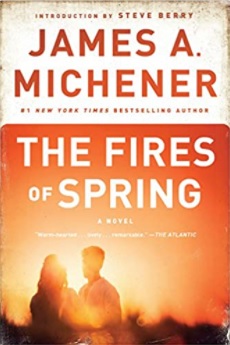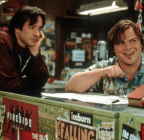Six Great Coming-of-Age Classics

Make sure your son can put a check mark next to each of the books on this list, books every young man should read before he learns to drive, and every old man should reread before he dies. Tweet

Highlights
Dickens: “Whether I shall turn out to be the hero of my own life, or whether that station will be held by anybody else, these pages must show.”
When I was a...high-school freshman sentenced to detention...the high-school football team’s quarterback gave me a copy of [“Catcher In the Rye.”]
Why are so few, rites-of-passage books published now?
If you’re the father of a boy closing in on 16, make sure he can put a check mark next to each of these masterpieces. They are books every young man should read before he learns to drive. If he does, when he gets behind the wheel, no matter which way he’s headed, he’ll know exactly how to get where he’s going.
Anthropologists, sociologists and psychologists often study major passages in men’s lives, but the portal that opens from childhood to adulthood is the one that applies here. It’s the doorway that focuses on how a boy accidentally becomes a man simply by collecting profound experiences that have individual, personal relevance. In becoming a man, there’s no mom and dad, no wife and kids, just you and a big world inhabited by grown-ups, often including that most indelible of magical, mythical, coming-of-age characters — a hooker. No wonder she inspires great literature about bad behavior.
Take these:
1. Oliver Twist—Charles Dickens
First sentence:
“Among other public buildings in a certain town, which for many reasons it will be prudent to refrain from mentioning, and to which I will assign no fictitious name, there is one anciently common to most towns, great or small: to wit, a workhouse; and in this workhouse was born; on a day and date which I need not trouble myself to repeat, inasmuch as it can be of no possible consequence to the reader, in this stage of the business at all events; the item of mortality whose name is prefixed to the head of this chapter.”
Orphaned at birth, Oliver is taken away to work for an undertaker as the story opens in a workhouse in a village called Mudfog. The sympathetic, often-unpaid prostitute is Nancy. After Nancy and Mudfog, things improve.
2. David Copperfield—Charles Dickens
First sentence:
“Whether I shall turn out to be the hero of my own life, or whether that station will be held by anybody else, these pages must show.”
Spoiler: he turns out to be the hero. The prostitute is Martha.
3. Huckleberry Finn—Mark Twain
First sentence:
“You don’t know about me without you have read a book by the name of The Adventures of Tom Sawyer, but that ain’t no matter.”
Huck, an orphaned boy, runs away and has some life-changing adventures on Ole Muddy while floating through Civil War-era America. He learns about bravery, tolerance and life on the river. No prostitutes are involved, but he does meet a woman named Hooker.
It’s the doorway that focuses on how a boy accidentally becomes a man simply by collecting profound experiences…
4. Catcher in the Rye—J.D. Salinger
First sentence:
“If you really want to hear about it, the first thing you’ll probably want to know is where I was born, and what my lousy childhood was like, and how my parents were occupied and all before they had me, and all that David Copperfield kind of crap, but I don’t feel like going into it, if you want to know the truth.”
Then he goes into it, entertainingly, using one of the most engaging, narrative voices in first-person fiction, fleeing not from a poorhouse but from Pencey Prep—a boarding school for phonies—and into post-war Manhattan. He meets a hooker named Sunny.
When I was a chubby, pimpled, 14-year-old, high-school freshman sentenced to detention for being a moron, the high-school football team’s quarterback gave me a copy of this book. He told me I should read it. It was a handoff from God to a mini-minor Moses—an amazing miracle and all that kind of crap.
5. A Separate Peace—John Knowles
First sentence:
“I went back to the Devon School not long ago, and found it looking oddly newer than when I was a student there fifteen years before.”
No sex—not even a single prostitute—just the incredible complexity of friendship between boys and how it shapes every lad’s passage into manhood.
6. The Fires of Spring—James A. Michener
First sentence:
“David Harper could scarcely sit still.”
He’s fidgeting because his teacher, Miss Clapp, is reading The Iliad to the class, and he wants a better ending for Hector, not least because his own beginning—in a poorhouse, of course—was so unheroic. He runs away and joins a carnival, where he meets a prostitute who falls in love with him—as prostitutes sometimes do in fiction. From there to manhood, it’s just a matter of pulling up his pants. The book is Michener’s first novel. It’s an epic rite of passage, following—in the words of a 1949 Kirkus reviewer—“a singularly devious route to maturity.”
Most of these are mid-20th-century masterpieces. Why are so few, rites-of-passage books published now? It may be because the children of the ’60s have never bothered coming of age.


